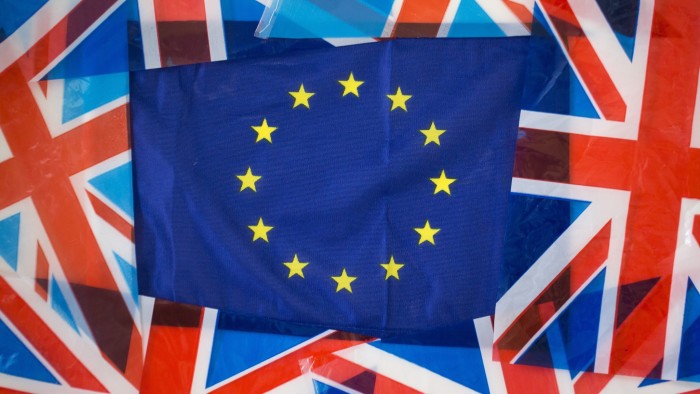Free Britain to trade with the world

Roula Khalaf, Editor of the FT, selects her favourite stories in this weekly newsletter.
The central fact of our age is the rise of what we still think of as the “developing world”. In the past decade the economies of countries such as China, India and Ethiopia have doubled in size, but the eurozone’s gross domestic product, incredibly, has only just returned to pre-crisis levels.
Just as in the 18th century there was a gravitational shift from the Mediterranean to the Atlantic, so we are seeing a shift from the Atlantic to the Pacific. As recently as 1980, according to the International Monetary Fund, the 28 states that now make up the EU — on its membership of which Britain votes on Thursday — accounted for 30 per cent of world gross domestic product. That figure is now about 17 per cent and falling.
I recently made a jocular remark to the effect that every continent was growing except Antarctica and Europe. A Spanish friend sent me a list of statistics showing that the business of hosting cruise ships — one of Antarctica’s few sources of economic activity — is in fact booming. Britain, he noted, is trapped in the world’s only stagnant trade bloc.
As a merchant and maritime nation with few natural resources, Britain’s prosperity depends on buying and selling. Yet the EU will not sign bilateral trade agreements with parts of the world, such as China, that are growing. Talks with India have been stalled for years. Negotiations with Australia have been threatened by a dispute involving Italian tomato growers.
I do not know whether the Italian tomato growers are right or wrong. But I do know that, outside the EU, Britain would have reached a bilateral trade deal with Australia decades ago. It would never have applied the EU’s common external customs tariff and would still be buying Australia’s agricultural surpluses to the benefit of both nations.
The purpose of trade is to swap on the back of differences — to purchase from abroad what you do not produce yourself. I am not sure it made sense for Britain to abandon the Commonwealth, a genuinely diverse global market system — one that brought together agrarian, commodity-based, manufacturing and service-oriented economies — in exchange for membership of a more homogenous bloc of advanced western European states. But, whether or not it made sense in the 1970s, it plainly makes no sense today.
Back then, freight costs were high, refrigeration expensive, travel rare. Regional trade blocs looked like the future. But in an age of Skype and cheap flights, distance has never mattered less. Why should we allow accident of geography to trump ties of language and law, habit and history, culture and kinship?
Indian companies are largely English-speaking, use British accountancy systems and operate under the same common law model. Britain is the third-largest investor in India — and many UK companies that have established themselves there, such as JCB, understandably want to leave the EU. India, conversely, is the third-largest investor in the UK . Yet we cannot sign a trade deal, partly because of opposition from European textile and farming interests.
For years, probably decades, to come the EU will remain convulsed with its twin disasters: the euro crisis and the Schengen crisis. Its answer to both crises is deeper integration — more of the medicine that sickened the patient.
Because Britain has kept its borders and its currency, it has a choice. Should it make the euro and migration problems its own? Or should it strike a different deal with the EU, one that retains the benefits of free trade, intergovernmental collaboration and military alliance but removes the UK from Brussels’ political structures, leaving eurozone states free to pursue their own vision?
As recently as 2006, the EU was taking 55 per cent of UK exports. That had fallen last year to 45 per cent. Where will it be in 2030 — or 2050? How low must it go before we stop hearing the bizarre argument that we should merge our political institutions with those of nearby states so as to have a minority voice in the setting of standards over a declining portion of our commerce?
There are more than 190 states in the world; only 28 are in the EU. Are we really unable to manage our own affairs in the same way that, say, New Zealand or Switzerland do? Have we lost our global vision, our confidence in our own democracy? Are we truly so diminished?
The writer is a Conservative MEP and author of ‘Why Vote Leave’
Comments